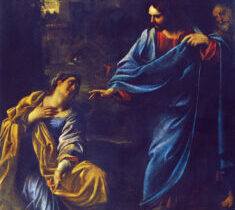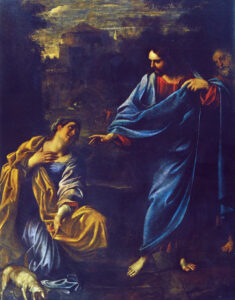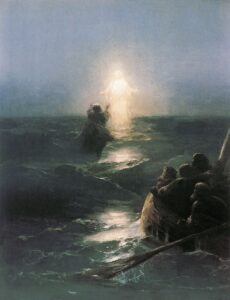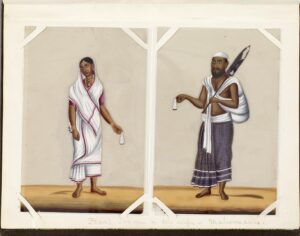Set Enmity Aside – An Ancient Wisdom
 In the olden days when I was a girl, I knew a woman who told me of a time when some of her classmates were teasing her. She had an older brother and he gave her a piece of advice that she carried with her into her old age: “Don’t get mad, get even!” Unfortunately, she took the advice to heart and it caused difficulties in interpersonal relationships for as long as she lived.
In the olden days when I was a girl, I knew a woman who told me of a time when some of her classmates were teasing her. She had an older brother and he gave her a piece of advice that she carried with her into her old age: “Don’t get mad, get even!” Unfortunately, she took the advice to heart and it caused difficulties in interpersonal relationships for as long as she lived.
We often hear a version of this advice even today. We are encouraged to take revenge, sometimes phrased in the guise of obtaining justice or “evening out” the balance. Perhaps the most chilling version of it is the statement, “Revenge is a dish best served cold.” The very words send a chill. Where does it end? As Mahatma Gandhi remarked, “An eye for an eye will only make the whole world blind.”
An ancient Hebrew scribe, Ben Sira, collected a variety of ethical instructions, organized by theme, into a book which survives to this day. “Wrath and anger are hateful things, yet the sinner hugs them tight.” “Could anyone nourish anger against another and expect healing from the Lord?” He advises us all to remember that in the end, all will die. Better than seeking vengeance, “set enmity aside … cease from sin.” Sounding much like Jesus, he advises all, “Think of the commandments, hate not your neighbor; remember the Most High’s covenant, and overlook faults.” (Sir 27:30-28:7)
Great advice, but it’s not easy to live this way. Our feelings are hurt, we are embarrassed, we get angry. Yes, we get angry. Anger is an emotion that we all feel from time to time. But what do we do with the angry energy? If we harbor and feed it, it grows stronger. It takes energy we could be using to move on or to build something worthwhile in its place. The anger we are building can even take on a life of its own, prodding us forward with ever greater plans for getting even, that only result in more angry energy flooding back over us.
Ben Sira’s advice is solid. Set enmity aside, let it go! What happened was not right? OK. Recognize that. State that. Then let it go. Don’t let it begin to control or define you.
I totally admit, as a person with a temper that can flare, that letting go of anger is not easy. However, when I find myself beginning to go over in my mind the offenses that have happened to provoke the anger, and feel the anger building, I have learned most times to tell it, “Go away! I don’t need you right now! You are not helping!” And much to my surprise, it typically goes away. Sometimes I have to insist and say it more than once, but it will go away and I will have the energy to do the next thing that I need to do.
Jesus made the same point about forgiveness of injuries to Peter. The number seven is symbolic in Scripture. It’s the number that represents perfection. All was created in six days and on the seventh day, the day of perfection, God rested. When Peter asked Jesus if it was necessary to forgive an offender seven times, he was essentially asking about how far it is necessary to go. Is there any limit to the requirement to forgive? Surely, there must be a time when we can just turn away from an offender, cut the person out of our lives, and move on? But Jesus doesn’t allow that. Not just seven times. Seventy times! There’s no end to the requirement to forgive. (Mt 18:21-35)
This plays out in daily life in practical ways, as the parable of the servant who owed a master a great deal of money demonstrates. The master forgave the debt, until the servant refused to forgive a smaller debt owed by another servant. When the master discovered that unwillingness to forgive, then the first servant lost the debt forgiveness he had already received.
The lesson Jesus and Ben Sira want us all to remember is that if we don’t offer forgiveness to others, we cannot receive it ourselves. It’s just plain impossible. Our hearts are sealed off in a cold room, with not a sliver of light able to enter and bring warmth and healing. We can’t receive forgiveness, so the Lord can’t give it to us. The Lord respects our free will and will not force us to open. That would be a violence against us and the Lord loves us too much to do that.
We can only heal when we are willing to let go of anger and accept healing.
We are the Lord’s. We live and die for the Lord. And as we set enmity aside, we share in the life of Christ. (Rom 14:7-9)
As we move through this week, seeing the high points and low points of our human interactions and our responses to the natural disasters that come along around the world, let’s try to remember to set anger and enmity aside in our own personal worlds. We can’t resolve the issues of the larger world by ourselves. However, we can become an island of peace and forgiveness in our own families and communities. We can help to heal old wounds as we offer forgiveness and acceptance. We can refrain from passing on the wounds that we have been dealt in the past. We can make a better world – one day and one person at a time.
“Set enmity aside.”
Readings for the Twenty-fourth Sunday in Ordinary Time
Read More

































